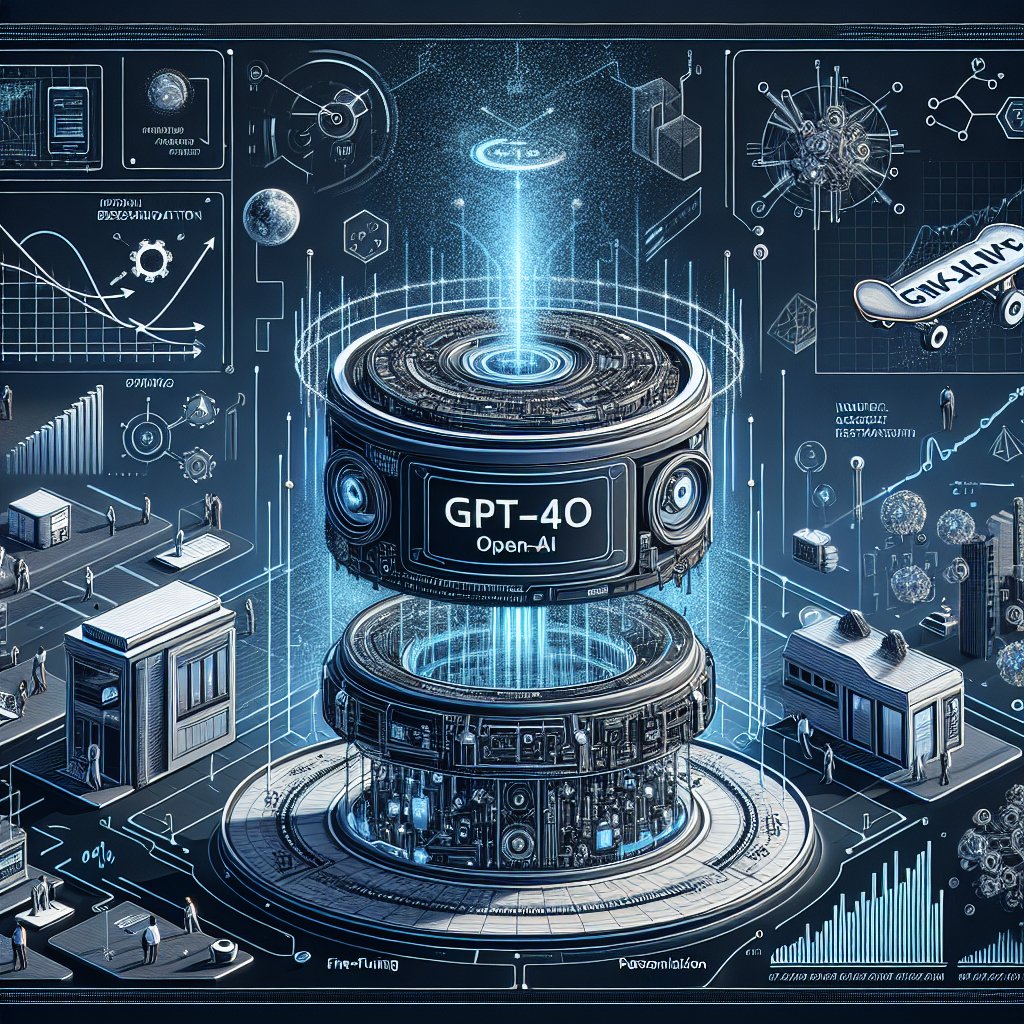Image created by AI
OpenAI Unveils AI Customization Feature for Enhanced Corporate Use
In an innovative leap forward, OpenAI has announced the introduction of a groundbreaking feature that significantly augments corporate adaptability and efficiency of AI machines. This new offering focuses on the concept of AI-as-a-service, enabling businesses to imbue OpenAI's paramount model, GPT-4o, with their proprietary data, fundamentally personalizing AI interactions and functions.
The announcement marks a strategic move in an increasingly competitive industry, where artificial intelligence products are pivotal to corporate success and the race to demonstrate the tangible benefits of AI investment is intensifying. OpenAI's latest feature—which can be regarded as "fine-tuning”—is set to debut on Tuesday, offering a transformative tool that lends itself to profound business optimization.
Fine-tuning is an AI industry term that essentially refers to the supplemental training of an existing AI model on specific types of tasks or knowledge domains. This function enriches the AI’s understanding and responsiveness in particular sectors, enhancing the overall user experience and capability.
Consider, for instance, a manufacturer of skateboards aiming to implement an AI customer service chatbot. Through fine-tuning, the GPT-4o could be customized to adeptly manage inquiries on product maintenance or particularities such as wheel selection—thereby not only responding with generic answers but providing precise, customized guidance.
Notably, this level of model personalization is novel for OpenAI's flagship GPT-4o series. Though fine-tuning had been previously possible on more diminutive and affordable counterparts like GPT-4o mini, the extension of this modularity to the full-scale GPT-4o is unprecedented.
Olivier Godement, OpenAI’s head of product for the API, articulated the organization's commitment to ease-of-use as a central objective. By reducing the initial barriers, OpenAI aims to streamline the initial setup process and foster an ecosystem where businesses can refine the AI's proficiency without resorting to third-party services or opting for less capable versions.
To initiate the fine-tuning process, customers are tasked with uploading text-based content to OpenAI's secured servers, a procedure that according to software engineer John Allard, averages one to two hours for completion. At this stage, image and other content customizations remain beyond the feature’s scope, accentuating a text-centric enhancement pathway.
This bold move by OpenAI is set to redefine the landscape of business-oriented AI, offering a level of customization that aligns closely with the specific needs and industry jargon of various companies, paving the way for more intelligent, efficient, and responsive corporate AI integrations.










